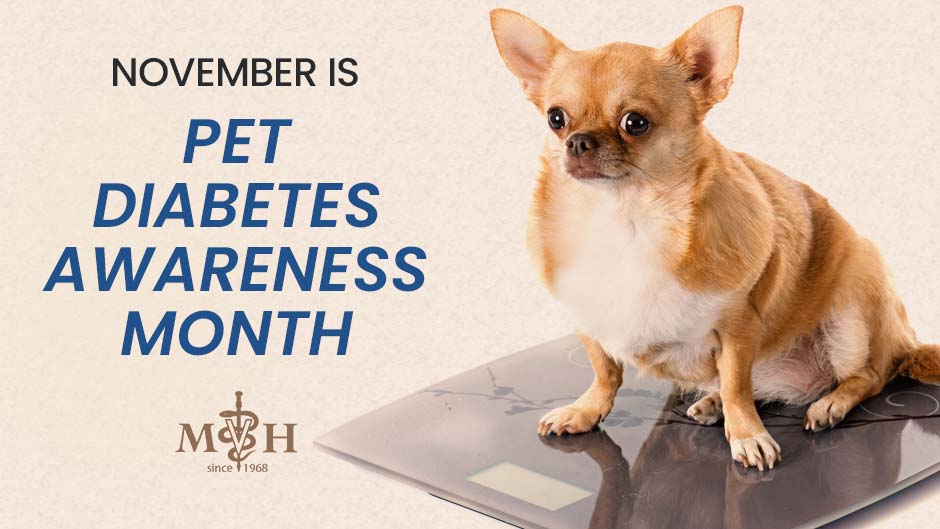Signs of Diabetes in Dogs and Cats
We encourage you to contact our animal hospital for an evaluation if you notice any of these symptoms in your pet:
We encourage you to contact our animal hospital for an evaluation if you notice any of these symptoms in your pet:
Increased thirst: If your pet suddenly starts emptying his water dish more often, it could be an early indication of diabetes.
Increased urination: When blood sugar levels become elevated, it causes them to spill out from the cells in your pet's body into her urine. In addition to urinating more frequently, you might start to see your dog or cat have potty accidents in the house.
Increased appetite: Diabetes affects the way amino acids interact with the cells, which means the food your pet eats may not leave him feeling satiated.
Weight loss: It seems odd that your pet would lose weight at the same time she's taking in more food. This is because diabetes prevents essential nutrients from reaching your pet's cellular level.
Vision disturbances and blindness: Unfortunately, diabetes can cause pets to go blind. This is more common in dogs. Pets that retain their vision may struggle with cataract issues.
Fatigue: Your pet may sleep more or show little interest in playing. Dogs will not look forward to walks the way they once did.
Kidney failure: This symptom is more common in cats. They typically display it through weight loss, reduced appetite, and low energy.
Urinary tract infection: This occurs when excess sugar grows inside your pet's bladder and causes an infection. Urinary tract infections and kidney failure are secondary symptoms of pet diabetes.
Managing Your Pet's Diabetes
After confirming a diabetes diagnosis with a blood test, we will talk to you about the best ways to manage the condition. Both dogs and cats should lose weight if overweight or obese and get regular exercise. Dogs can benefit from a high-fiber diet while cats should consume food low in carbohydrates and high in protein. You will likely have to give your pet insulin shots as well as oral medications are ineffective with animal diabetes. It's also important to schedule regular check-ups along with monitor your pet's weight, water consumption, and urination.
After confirming a diabetes diagnosis with a blood test, we will talk to you about the best ways to manage the condition. Both dogs and cats should lose weight if overweight or obese and get regular exercise. Dogs can benefit from a high-fiber diet while cats should consume food low in carbohydrates and high in protein. You will likely have to give your pet insulin shots as well as oral medications are ineffective with animal diabetes. It's also important to schedule regular check-ups along with monitor your pet's weight, water consumption, and urination.
Please don't hesitate to contact Minnesota Veterinary Hospital with additional questions or to schedule an appointment.
Photo Credit: Cynoclub / Getty Images

